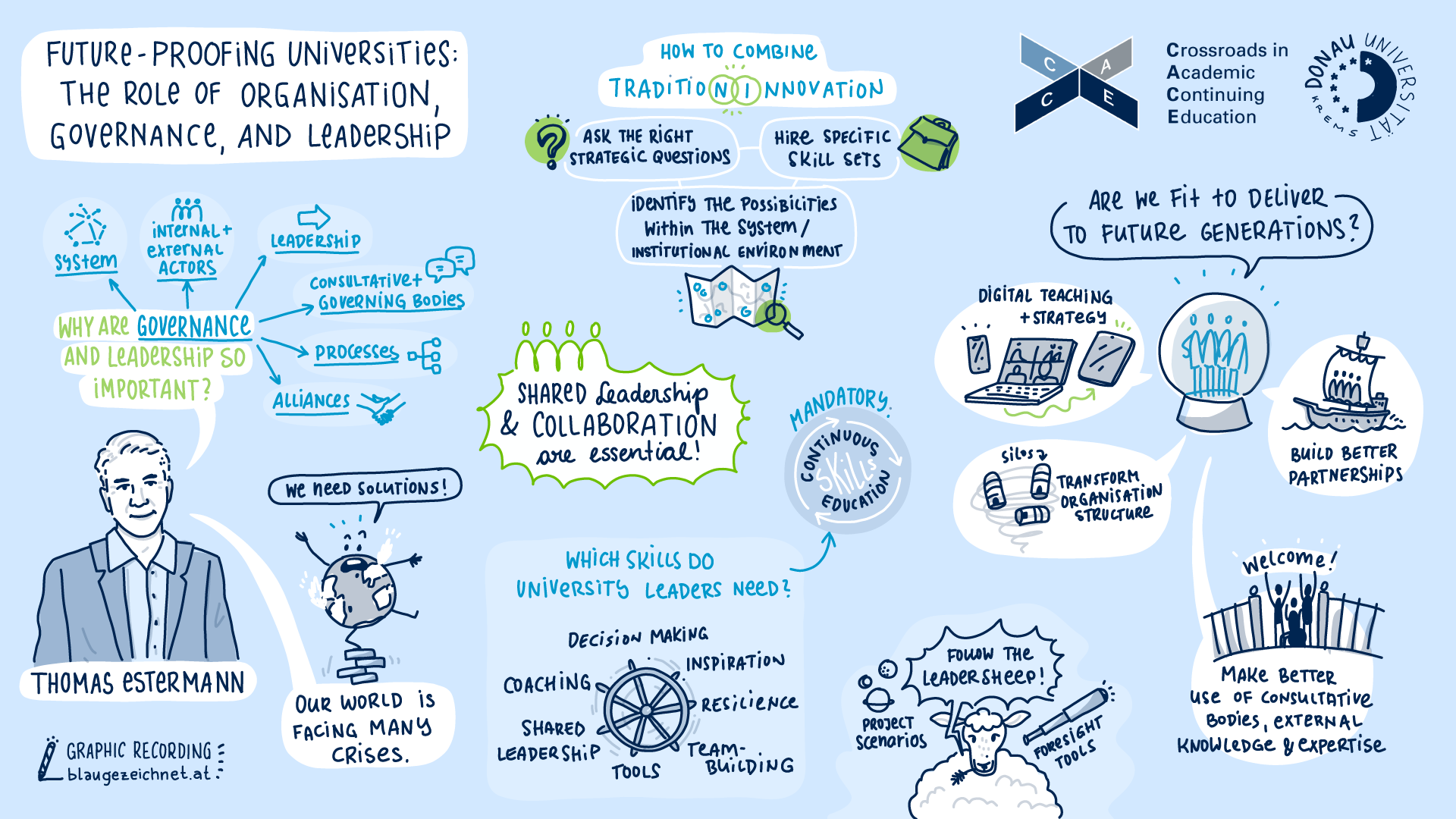
The challenges facing universities have increased over the past ten years, explains Thomas Estermann from the European University Association (EUA). EUA is the largest association of European universities and universities of applied sciences. Universities today are confronted with more complex problems than ever before - from geopolitical conflicts and climate change to long-term crises, says Estermann. Although global developments have always had an impact on universities, this has taken on a completely new dimension.
The expert is convinced that models of governance and leadership need to be rethought in order to meet the complex challenges and remain fit for the future. Previous models are reaching their limits because times are moving faster. According to Estermann, a good interplay between formal and informal governance is important.
One example of this realignment is the topic of sustainability. “In future, it won't be enough to entrust one manager with this. We need to think about the topic horizontally.” The same applies to digital transformation or diversity and inclusion. In view of the large number of relevant topics, it is essential to “organize cooperation in such a way that you are well positioned as an institution”.
In most European countries, dual governance is common - consisting of a senate representing the academic community and a council with external members. Estermann advocates a more strategic selection of these committee members. Until now, they have often been selected according to their representative status, for example because they represent a faculty or a group. Instead, appointments should be based more on necessary skills and strategy.
As the university management cannot cover everything, external advice is indispensable. Some universities have already developed innovative approaches here, for example in the area of digital transformation. The Zurich University of the Arts, for example, has set up a “Digital Council”: an interdisciplinary body of experts that advises the management on digital issues. A positive example from Austria is the “Digital University Hub”, a cooperation platform of several universities. “Nowadays, no institution can invent and develop everything on its own. Cooperation and collaboration are essential.”
Shared leadership and strategic leadership development are also playing an increasingly important role. EEA has launched its own further education program, the “Leadership Development Programme”. The first run will start in spring 2025. (https://www.eua.eu/our-work/projects/eua-projects/eua-leadership-development-programme.html)
About Thomas Estermann

Thomas Estermann is Director for Governance, Funding and Public Policy
Development with responsibilities for EUA’s work aimed at strengthening
universities’ autonomy, governance, leadership, management and their financial sustainability.
Thomas is actively involved in various European and national committees, expert groups, editorial boards, and advisory boards, including those of European university alliances. He regularly contributes to higher education management programs. Thomas has provided guidance in multiple national higher education reform processes in Europe and beyond and has authored publications on university funding, governance, leadership, and management.
Prior to joining EUA in 2007, he held the position of Deputy University Director at the University of Music and Performing Arts, Vienna. During this time, he served as a member of the university's senate and was involved in several significant higher education reforms in Austria. Before entering the University, he pursued a career as a lawyer.
He holds a master’s degree in law from the University of Vienna.